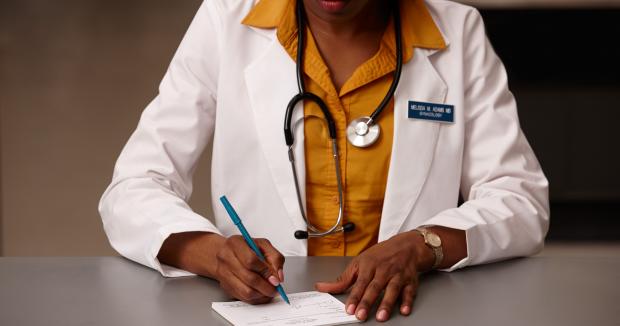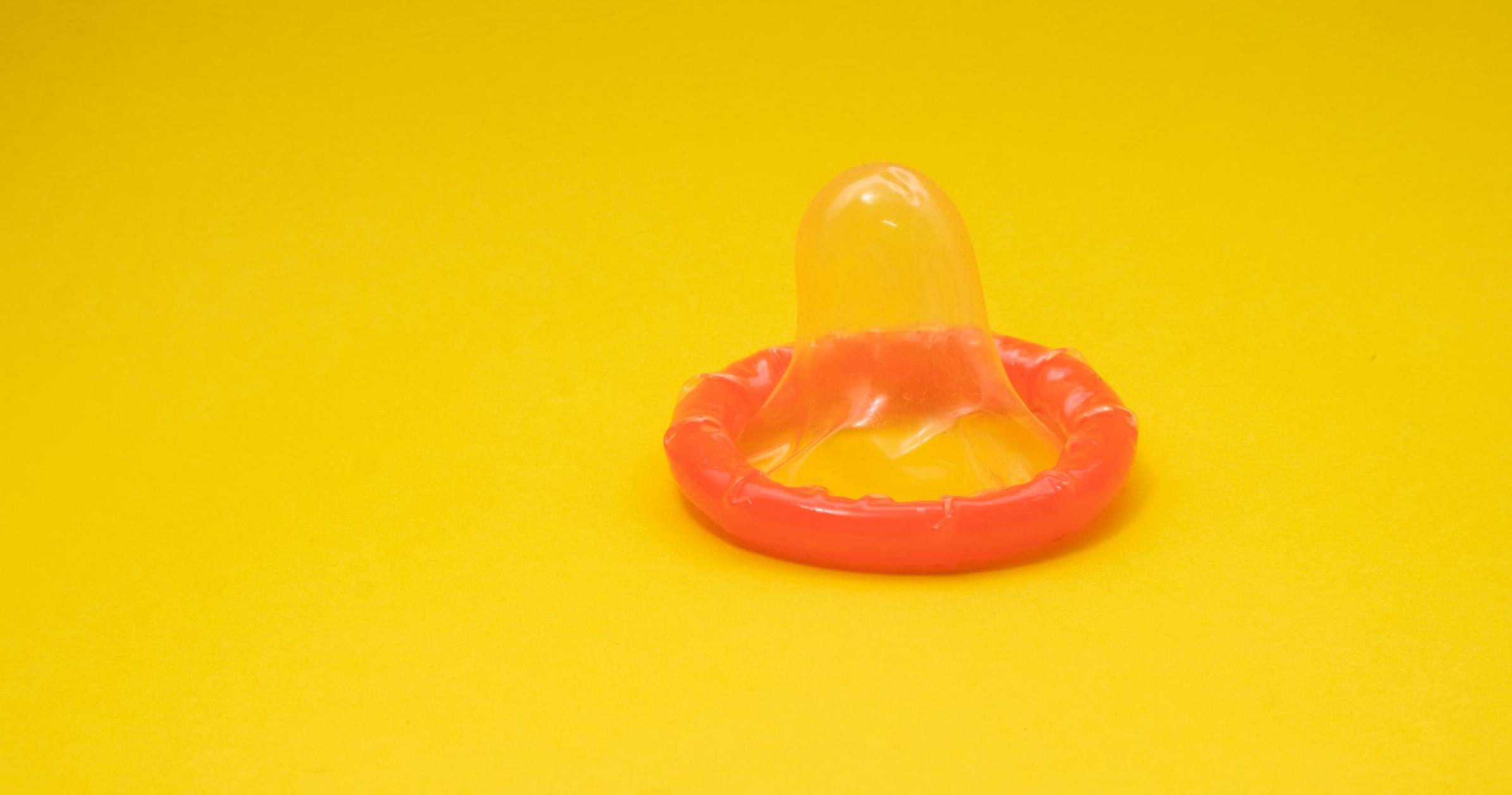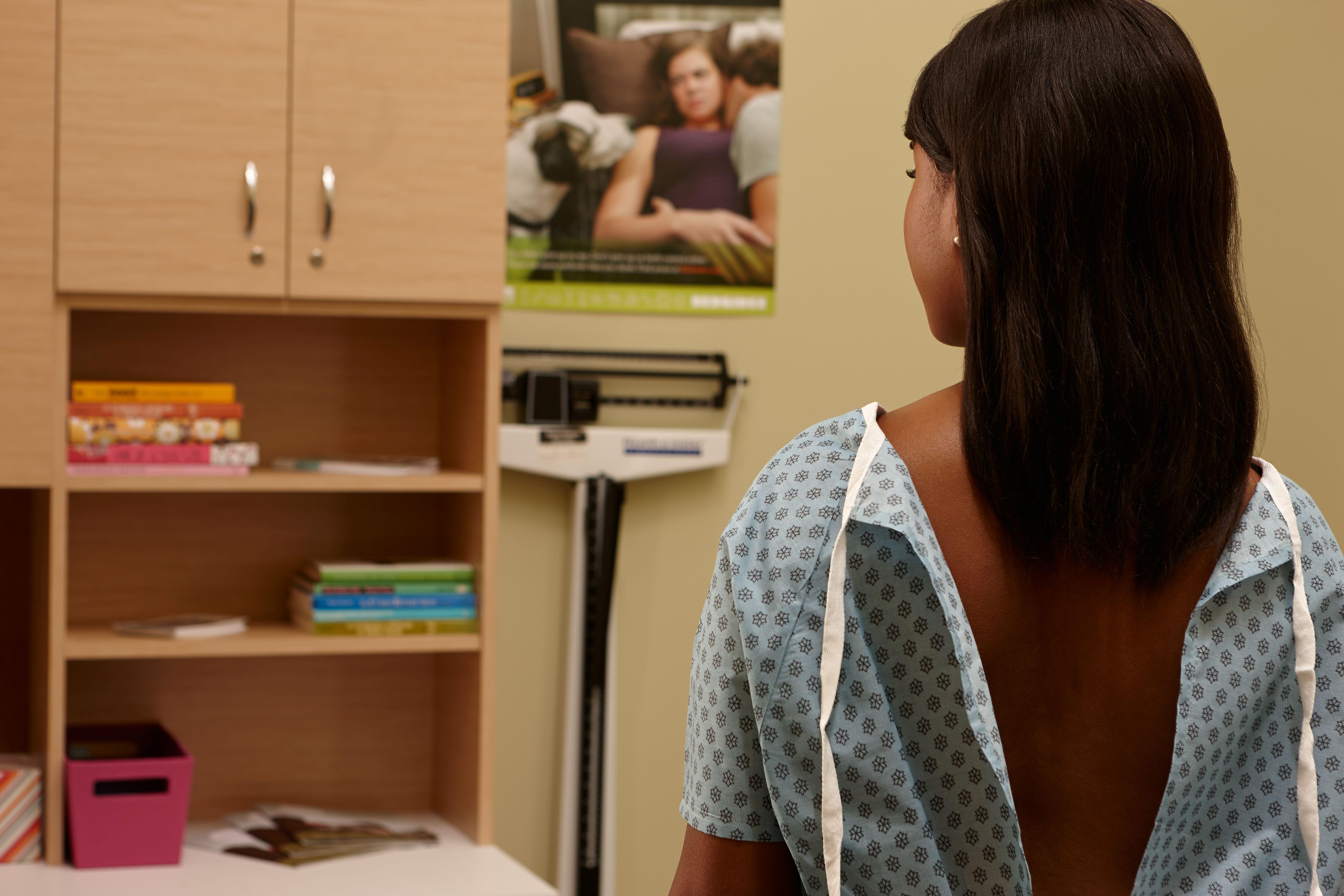Skip the Pelvic, Please!

What to expect when it’s time to visit your lady doctor. (It may just be a conversation.)
Going to see a health care provider can be intimidating, especially if you don’t know what to expect. But there’s good news: the visit may be as simple as talking to a provider at your nearest The Right Time health center.
If all you want is birth control and you’re up to date on your health checks, you may be able to breeze right through. For most kinds of birth control—the pill, patch, ring, shot, and implant—you may only need to fill out a medical history form, have a blood pressure check, and answer a few other questions.
When should I start going to the gynecologist or health clinic? It’s ideal to start visiting a health care provider on your own before you start having sex. If you don’t have any health problems, these visits just involve talking with your provider. All women should start getting Pap smears and pelvic exams beginning at age 21.
To demystify the whole process, let’s go over the types of tests that are sometimes included in women’s health exams and when they are usually given. Remember: you can get free or low-cost access to all the methods of birth control at your nearest The Right Time health center.
The Pap Smear
This test uses a mascara brush-like tool to collect a few cells from the cervix (the opening of the uterus). The cells are brushed on a microscope slide and examined for any abnormalities that could be early signs of cervical cancer. To access the cervix, your health care provider will insert a speculum in order to hold back the sides of the vagina. You will feel pressure, but it shouldn’t be painful. Tell your provider if it’s it so she can make adjustments.
When do I need a Pap? Everyone with a vagina should start getting Pap smears at age 21. From age 21 to 30, a Pap smear should happen every three years. Folks with certain risk factors may need to have more frequent Pap smears, so talk to your provider.
The Bimanual Pelvic Exam
A bimanual exam is used to check the reproductive organs—the uterus, fallopian tubes, and ovaries—for any swelling or tenderness. To do this exam, the health care provider puts two fingers just inside the vagina and uses the other hand to press on the outside of the belly. If you don’t want a bimanual exam, it’s fine to opt out. Just tell your provider you’d prefer to skip it.
When do I need a bimanual exam? A bimanual exam is usually part of the process when you get a Pap smear. You may also have a bimanual exam if you are having any problems, such as pain in your lower belly, unusual bleeding, or a strange discharge. Swelling or tenderness can be sign of an infection.
Sexually Transmitted Infection (STI) Tests
If you have sex, it’s a good idea to get tested for STIs such as gonorrhea, Chlamydia, and HIV. The test for gonorrhea and Chlamydia is really simple; all you have to do is pee in a cup. (Another way to test for these STIs is to collect sample using a cotton swab on the cervix, similar to a Pap test.) The test for HIV involves pricking a finger for a few drops of blood. You can be tested for HIV anonymously. You may want to be tested for other STIs depending on your symptoms; talk to your provider about whether other tests are a good idea.
When do I need STI tests? Everyone should get tested for STIs on a regular basis. It’s definitely a good idea to get tested before you start sleeping with someone new—ask your new partner to get tested, too. Your provider may also recommend an STI test if you have unusual symptoms, such as lower belly pain or unpleasant discharge.
While there are lots of good reasons to get regular Pap smears, pelvic exams, and STI tests, getting birth control may not be one of them. If you think you may be getting a test you don’t need, ask! Your provider should be able to explain the reason they think it’s necessary or come up with an alternate plan.
Updated December 2020
Related Content


Provider Perspective
The Common Cold of the Sexually Active World: HPVLet’s talk HPV—causes, treatments, and prevention.

Provider Perspective
Does Being Overweight Affect Your Birth Control?When it comes to birth control and weight, not all methods are created equal...

Provider Perspective
Period Pain? Birth Control Can Help!Hormonal birth control is one of the best ways to manage painful periods.



















